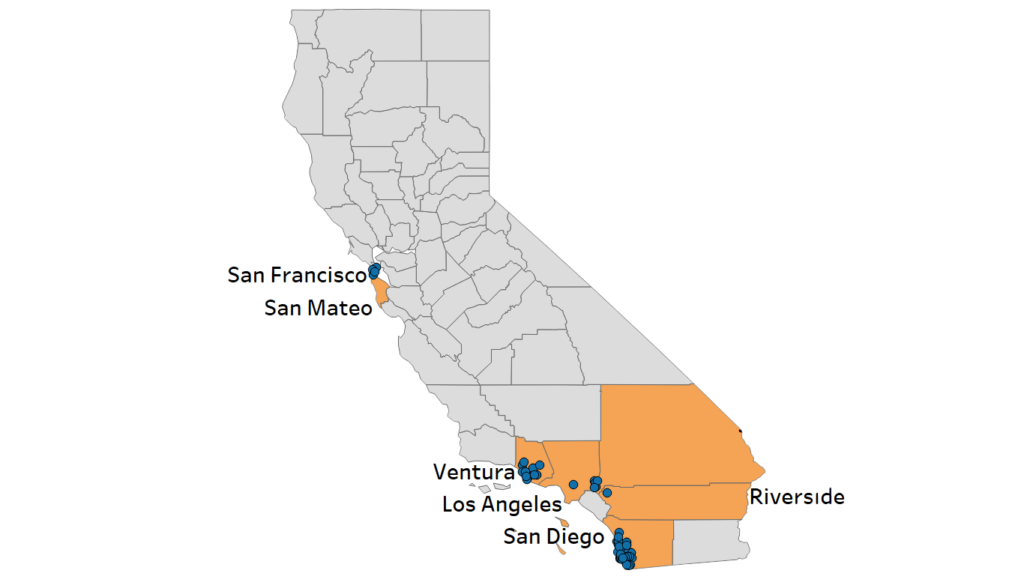CalHIVE Behavioral Health Integration (2023-2026)
Launched July 2023, the CalHIVE Behavioral Health Integration Improvement Collaborative is a three-year program operated by PBGH’s California Quality Collaborative (CQC) that supports California-based primary care practices as they integrate behavioral health services. CalHIVE Behavioral Health Integration helps organizations launch or expand screening, treatment and referrals for patients with mild-to-moderate depression, substance use disorders and other conditions.
The program is improving integration of behavioral health services within primary care for Californians by:
- Defining and implementing an integration pathway for each participant aligned with their organizational objectives.
- Increasing access to behavioral health services within the primary care setting to support depression and substance use management.
- Improving behavioral health and chronic disease outcomes across key indicators (depression screening, response and remission, diabetes, etc.).
Participating Organizations
Eight provider organizations located across California that provide care in aggregate for 500,000 patients are participating in the CalHIVE Behavioral Health Integration program:
- Chinese Hospital — hospital system with locations in San Francisco and Daly City
- Community Memorial Healthcare — hospital system in Ventura County
- Perlman Clinic, multi-site primary and specialty care clinic in San Diego
- Pomona Valley Hospital Medical Center — medical center located in Pomona
- Riverside Family Physicians — primary care practice in Riverside
- San Francisco Health Network — multi-site Federally Qualified Health Center (FQHC) and part of San Francisco’s public health system
- Scripps Health — San Diego-based health system (hospitals and ambulatory care)
- Sharp Rees-Stealy Medical Centers — multi-specialty medical group located in San Diego

Program participants receive:
- Funding of up to $100,000 over the duration of the program.
- Direct support to implement our Behavioral Health Integration Curriculum designed for California-based organizations.
- Learning events and improvement advising to design and implement efficient, sustainable and effective behavioral health services.
- The opportunity to engage with peers from other provider organizations and systems in an improvement collaborative model to share learnings and ideas.
Technical Assistance Partner
CQC is partnering with the Collaborative Family Healthcare Association (CFHA) for the CalHIVE Behavioral Health Integration technical assistance program. CFHA is a multi-guild member association with the goal to make integrated care the standard of care across the United States and beyond.
Support
CQC’s Behavioral Health Integration Initiative is made possible thanks to the generous support of the Centene Corporation and is a part of CQC’s CalHIVE Improvement Collaboratives offered to provider organizations in California.
Resources

Behavioral Health Integration Billing and Coding Sheet

BHI Quarterly Implementation Update

Behavioral Health Integration Initiative Annual Report Annual Report 2023

BHI Snapshot | Selecting an Integration Model

Behavioral Health Integration Implementation Plan
Our BHI Implementation Plan guides organizations through the creation of a plan that integrates multi-disciplinary team feedback to determine the integration model that best meets organizational needs.

CalHIVE Behavioral Health Integration Improvement Collaborative Prospectus
Upcoming Events and Training

CFHA Integrated Care Conference
Crystal Eubanks, Executive Director at the California Quality Collaborative and Vice President of Care Transformation at the Purchaser Business Group on Health, will present on the California Advanced Primary Care Initiative’s work to improve primary care delivery.

Behavioral Health Integration Implementation Webinar Series
The California Quality Collaborative’s Behavioral Health Integration Implementation Webinar Series is a three-part webinar series for health care organizations planning and implementing behavioral health integration.

Cal-IN Peer Group
In partnership with the Collaborative Family Healthcare Association, the California Quality Collaborative is hosting quarterly virtual peer group meetings for individuals working to integrate behavioral health care into the primary care setting in California.
Past Events and Training

Behavioral Health Integration Financing Convening
The California Quality Collaborative’s Behavioral Health Integration Financing Convening brings together stakeholders to explore findings from statewide interviews on sustainable payment practices and brainstorm improvement opportunities for integrating behavioral health into primary care.

Behavioral Health Integration Financing Convening
The California Quality Collaborative’s Behavioral Health Integration Financing Convening brings together stakeholders to explore findings from statewide interviews on sustainable payment practices and brainstorm improvement opportunities for integrating behavioral health into primary care.

CQC Webinar: Behavioral Health Integration – Children and Youth Collaborative Learning Exchange Program
BHI-CYCLE is a nine-month learning collaborative beginning October 2024 that will bring together organizations experienced in integrating behavioral health services into primary care for children and youth.

2024 CalHIVE Behavioral Health Integration Annual Convening
The California Quality Collaborative’s CalHIVE Behavioral Health Integration Annual Convening is a two-day learning and networking session for improvement collaborative participants.

Behavioral Health Integration Fundamentals: Concepts & Models
Integrating behavioral health into primary care is essential for providers looking to deliver patient-centered, high-quality and whole-person care. Yet many health care organizations struggle with knowing where to begin.

CalHIVE Behavioral Health Integration Improvement Collaborative: Informational Webinar
The CalHIVE Behavioral Health Integration Improvement Collaborative is a three-year program launched in July 2023 and will focus on supporting California based provider organizations as they integrate behavioral health services into their primary care practices.
